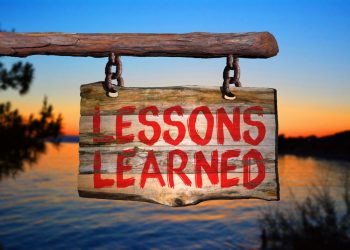Focusing on the ‘how’ and why’, not the ‘who’, allows seafarers to improve colleagues’ safety without revealing their identity to employers or authorities, highlights Adam Parnell, Director, CHIRP Maritime.
What do you do when something goes wrong onboard? We all know what should happen; after dealing with the initial aftermath, you should report the incident or near-miss up the management chain and, if relevant, to the right authorities. But all too often that does not happen. The upshot is that important lessons are then not learned, meaning seafarers continue to get put in harm’s way. It also distorts the true picture of safety in shipping. Often incident statistics are wildly off the mark, meaning there is not enough pressure to do something about it on an industry level.
However, submitting reports about incidents can be scary, and there are plenty of rational reasons to be worried about doing it. As ex-seafarers ourselves, we know all about those fears, at CHIRP Maritime, the Confidential Human Factors Incident Reporting Programme. We call them ‘the four Rs’: fear of revealing your identity, reprisals from managers, ridicule for speaking out and rejection if your reports are ignored or suppressed. That’s why, 20 years ago, we founded the first independent and anonymous maritime safety reporting programme. And across hundreds of reports – many of which have shaped company or regulatory policy – we have never revealed a source.
Protecting you and your safety
As anyone with experience working at sea will know, a lot has changed in those 20 years. New ways of working onboard and demands from ashore – as well as new technologies – have changed the industry for better and for worse. One thing that has not changed is the need to improve safety. Shipping still suffers more than 200 seafarer deaths a year, as well as 1,000 passenger fatalities and, according to The Pew Foundation, up to 100,000 deaths related to fishing. The reality is probably even worse due to under-reporting. We at CHIRP Maritime work hard to change these statistics by ensuring seafarers can report safety incidents and near-misses easily and without risk to them or their job. The information they share with us can then be used to identify safety issues in the maritime industry and best practice for others to learn from and avoid similar incidents in the future.
Knowledge is power and the more reports we receive the more lessons we can share. If we see the same kinds of safety issues being repeated across the industry, we will be able to share this with regulators and highlight the need for improvements to current safety regulations. We want to empower seafarers and ensure they cannot be ignored; by allowing us to amplify your voices to the wider industry you are helping to raise safety standards in maritime for everyone.
The ‘how’ and ‘why’
Anonymous reporting channels are often much simpler and quicker to use than official processes – at CHIRP Maritime you can send a report online or via our app or email in minutes. Because anonymous reports focus on finding and reporting the causes rather than the blame – the ‘how’ and ‘why’ rather than the ‘who’ – seafarers can help to improve safety by spreading important lessons without worrying about possible consequences.
Managers and colleagues will never know who has made a report; for example, CHIRP does not even need a surname when a report is filed. Anything that could be used to identify you as the reporter or the vessels or companies involved in the incident or near-miss is removed from reports before they are published. The reports are then shared online and to our subscribers who can learn from your experience and help others to prevent the same incidents from happening on their ship.
While confidentiality is a safeguard for seafarers worried about the risk of speaking out, anonymous reporting does not replace official channels. The most immediate way of making a difference to the safety of seafarers is for companies and authorities to be made aware of not only actual incidents but also near misses. But all too often those reports get stuck with the companies receiving them; submitting a report to CHIRP ensures that those learnings are anonymised and shared with the wider global seafarer community too.
Improving industry-wide safety together
Recent reports have highlighted a range of unsafe events and practices, from inappropriate protective equipment used during the painting of ship hulls to the impact of fatigue on small vessels. Often the reports lead to changes in company policy and, where needed, to intervention by authorities to rectify dangerous practice.
Each anonymous report plays its part in raising awareness of important safety issues and wider trends and provides lessons for seafarers and maritime leaders alike to learn from. To make sure your colleagues around the world have the opportunity to learn from your safety experiences, and to make the maritime industry a safer place to work, trust CHIRP. Report by report we can make shipping a safer place.
The views presented hereabove are only those of the author and do not necessarily reflect those of SAFETY4SEA and are for information sharing and discussion purposes discussion purposes only.






























































